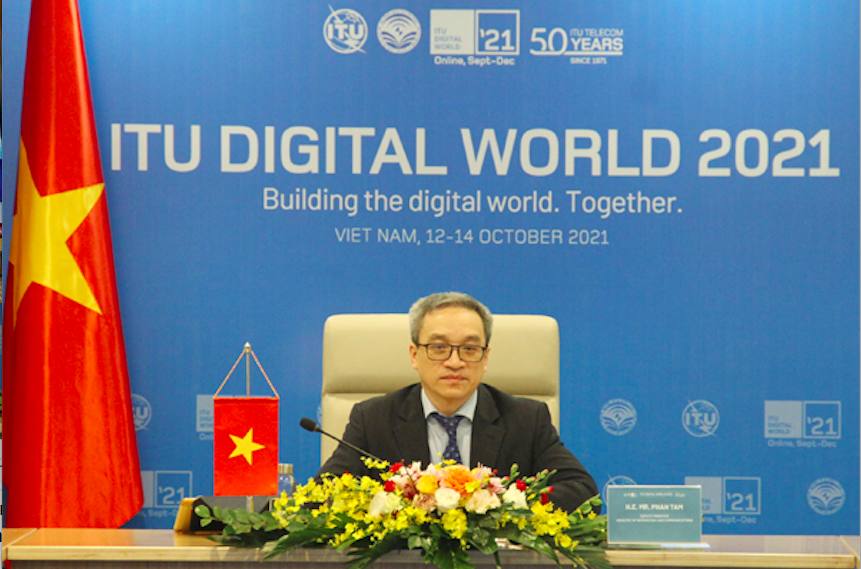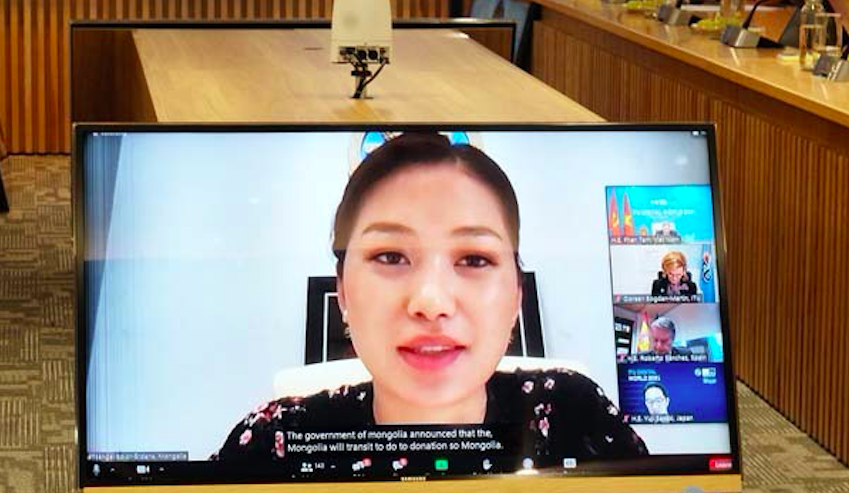Vietnam prioritizes digital infrastructure development
The Covid-19 pandemic remains a catalyst to accelerate the digitalization process, which is an inevitable trend for countries around the world.
Vietnam prioritizes investing in digital infrastructure that is seen as a foundation to ensure overall socio-economic development.
| Vice Minister of Information and Communications Phan Tam. Photos: Manh Hung |
Vice Minister of Information and Communications Phan Tam stressed the view at the virtual ministerial roundtable under the framework of the ongoing 2021 International Telecommunication Union (ITU) Digital World held between October 12 and 14 with the theme “Boosting infrastructure: rethinking the role of government in digital transformation”.
“Under Vietnam’s national digital transformation program, the country plans to push for digital infrastructure development in line with digitalization efforts in priority fields including education, healthcare, transportation or agriculture,” Tam said.
According to Tam, the Covid-19 pandemic remains a catalyst to accelerate digitalization, which is an inevitable trend for countries around the world.
“Reality shows the application of digital technologies, development of digital infrastructure and taking daily life activities to online platforms are key measures to help the world soon return to the normalcy,” Tam added.
In this context, Tam said Vietnam and other countries are in need of addressing core issues, including ensuring internet access for everyone everywhere and at any time; promoting digital infrastructure globally; providing useful digital services for socio-economic development, and contributing to peace, stability, and inclusive growth.
Tam also pointed out the huge difference in telecommunication infrastructure in the past and of the present, which has shifted from mainly serving communication between the people to providing platforms for diversification of socio-economic activities.
“The potential of cloud computing, IoT, AI, or 5G is huge, as their ecosystems could lead to the creation of new values for digital infrastructures,” he added.
Tam suggested countries should focus more on keeping internet access at a more affordable cost for the public, as the digital transformation eventually should benefit the people and for the people.
He cited Vietnam’s national digitalization strategy that is designed to address three issues which are providing fiber-optic internet to every household along with the 5G implementation; promoting the use of smartphones; offering large-scale online training of digital skills for the public.
| Chairwoman of Mongolia’s Communication and Information Technology Authority Bolor-Erdene Battsengel. |
Cooperation to foster digital world
At the roundtable, Chairwoman of Mongolia’s Communication and Information Technology Authority Bolor-Erdene Battsengel said the Covid-19 pandemic has brought opportunities for Governments to reassess their own infrastructure systems and the role of digital transformation to move forward.
Battsengel added Mongolia currently has 226 networks of fiber-optic internet with a length of 46,700 kilometers and 3.5 million smartphone users.
Along with the development of ICT infrastructure, the Mongolian Government has successfully launched a single online public services platform with 500 servers for a smooth provision of public services for the public during the pandemic.
She noted Mongolia has recently started the 2.0 online assistance system based on AI, which allows citizens to access multiple public services and send feedback to the Government.
Battsengel called for ITU members and other countries to continue cooperating and sharing experience in creating an effective digital world for the benefit of people around the world.
Bangladesh’s Minister of Post and Telecommunication Mustafa Jabbar said as the world is embarking on Industry 4.0, the private sector and public participation would play a key role in ensuring the effectiveness of digitalization, including the 5G development.
Nevertheless, Jabbar said the Government would be the key player in drafting the legal framework and prepare for the development of technologies.
According to Jabbar, Bangladesh has been testing the 5G network since July 2018 and is planning for nationwide coverage by 2022.
He expressed his belief the 5G technology would bring significant transformation to the world and changed people’s lives for the better.













